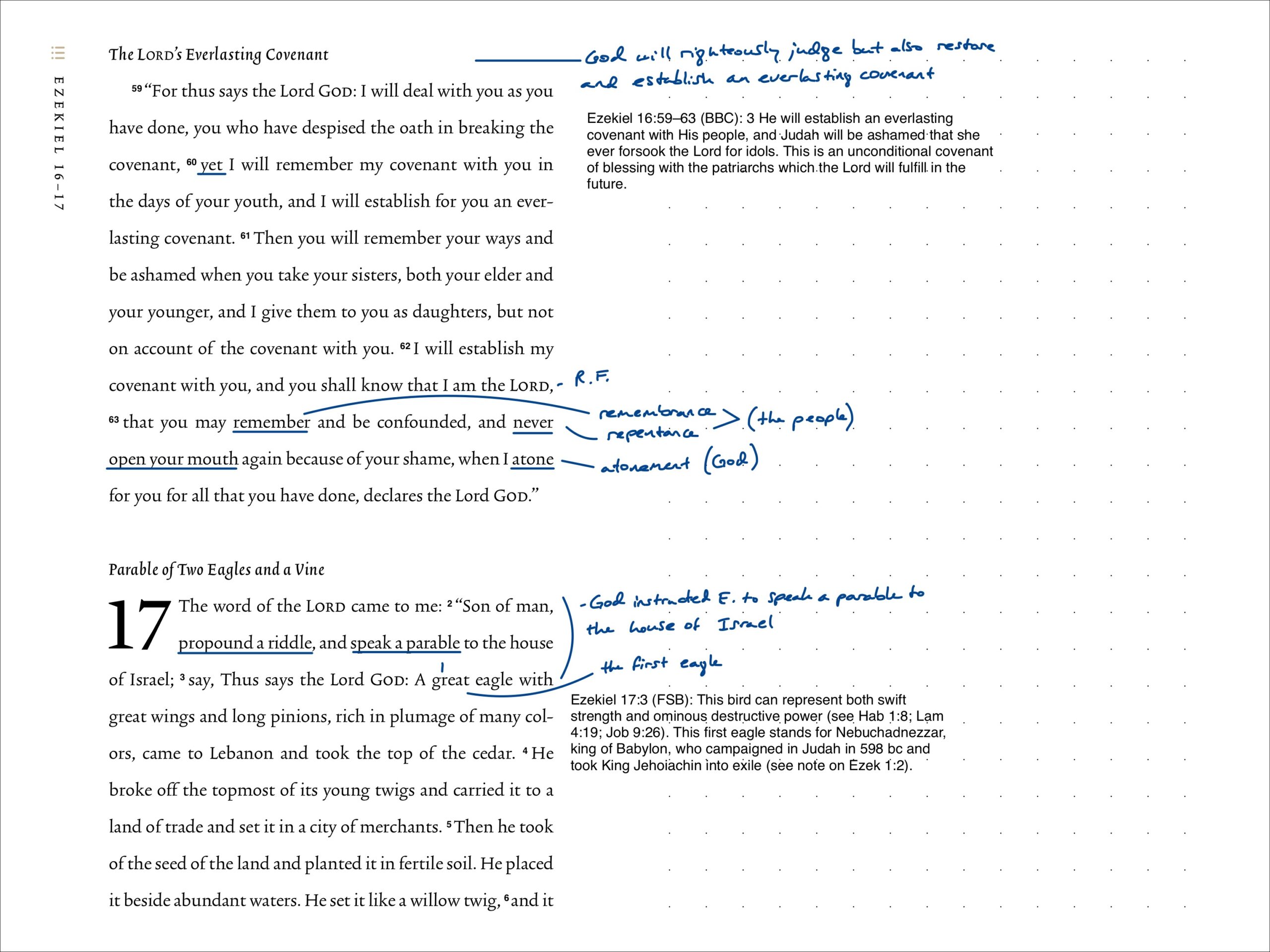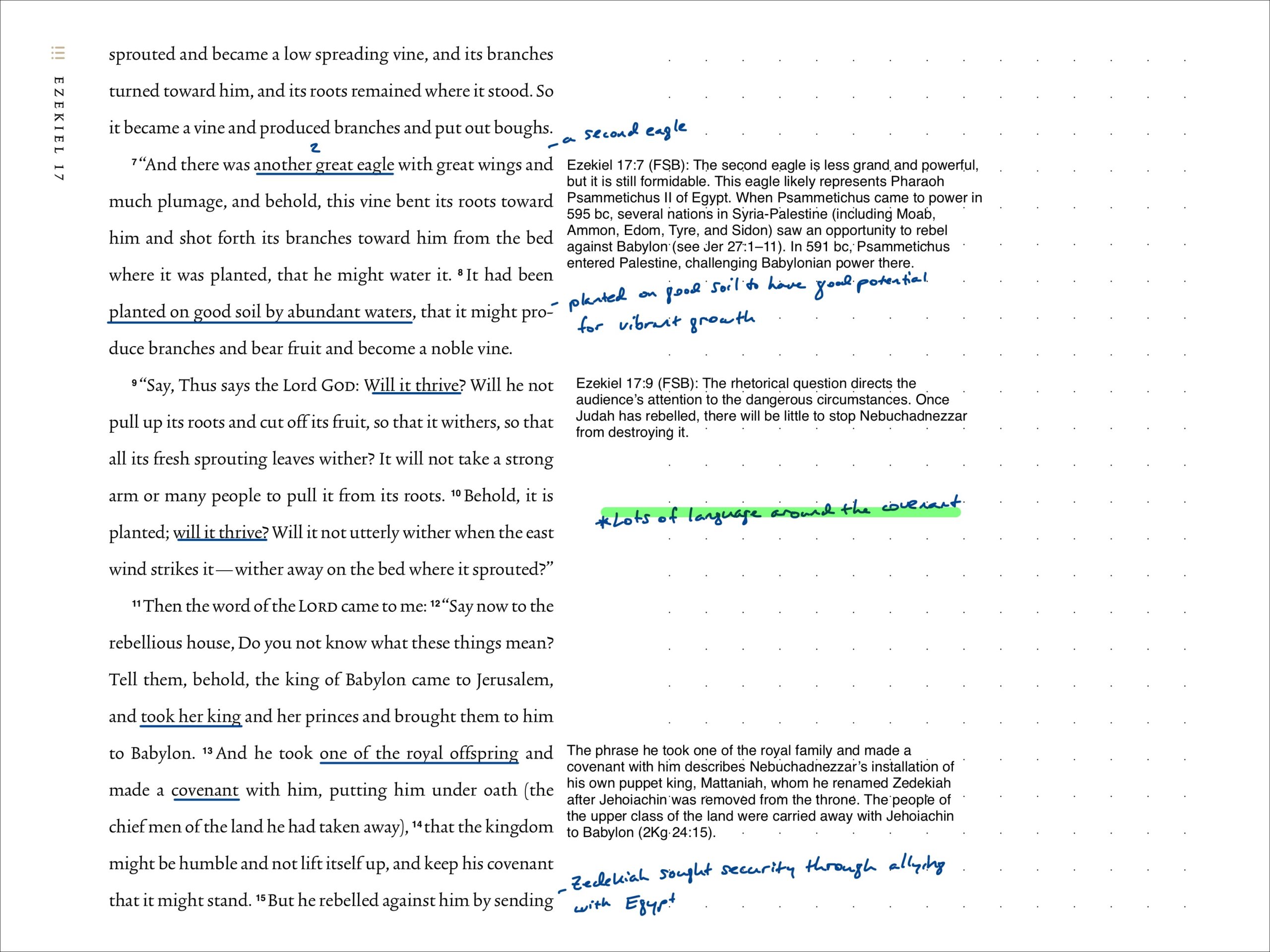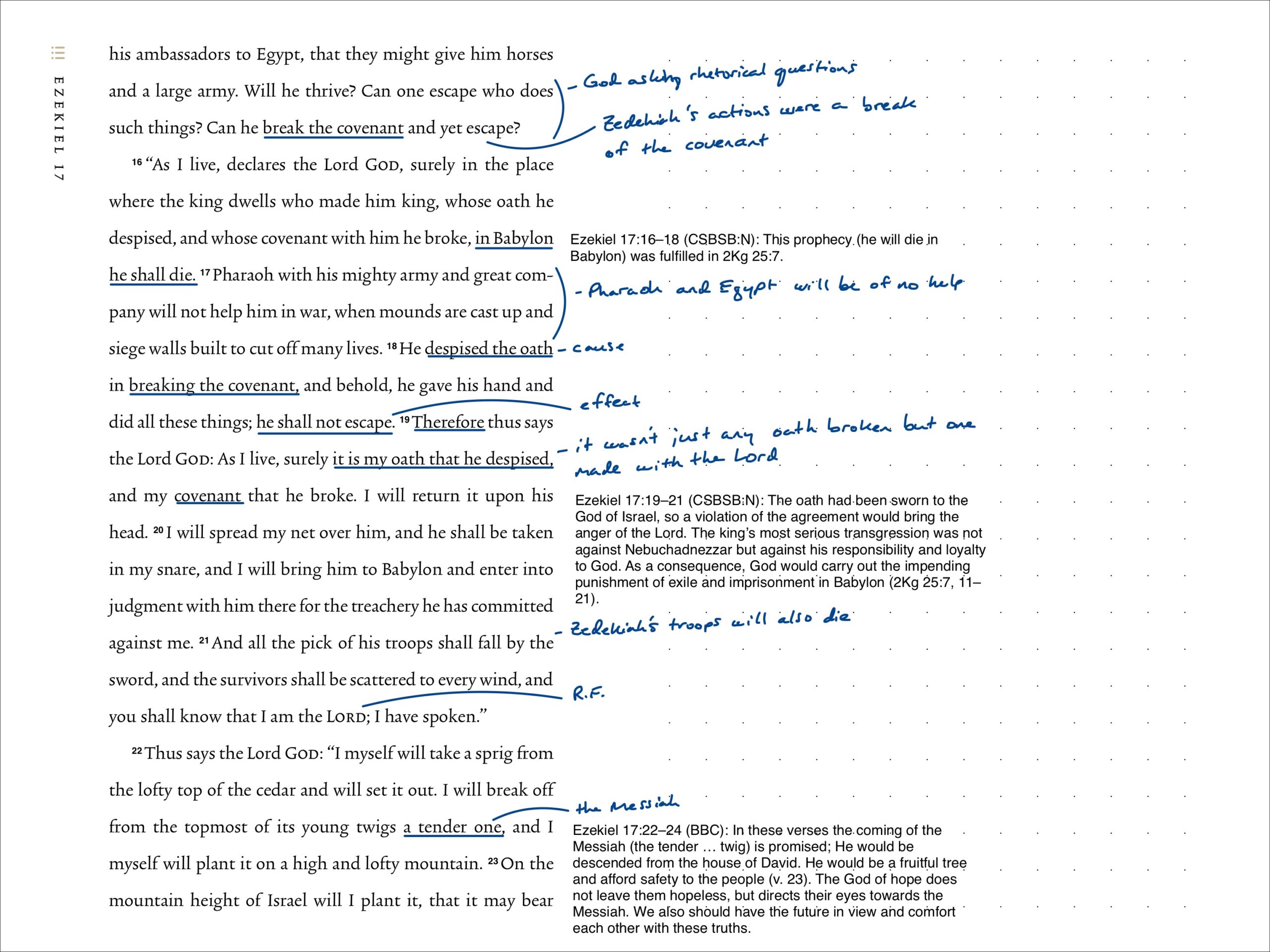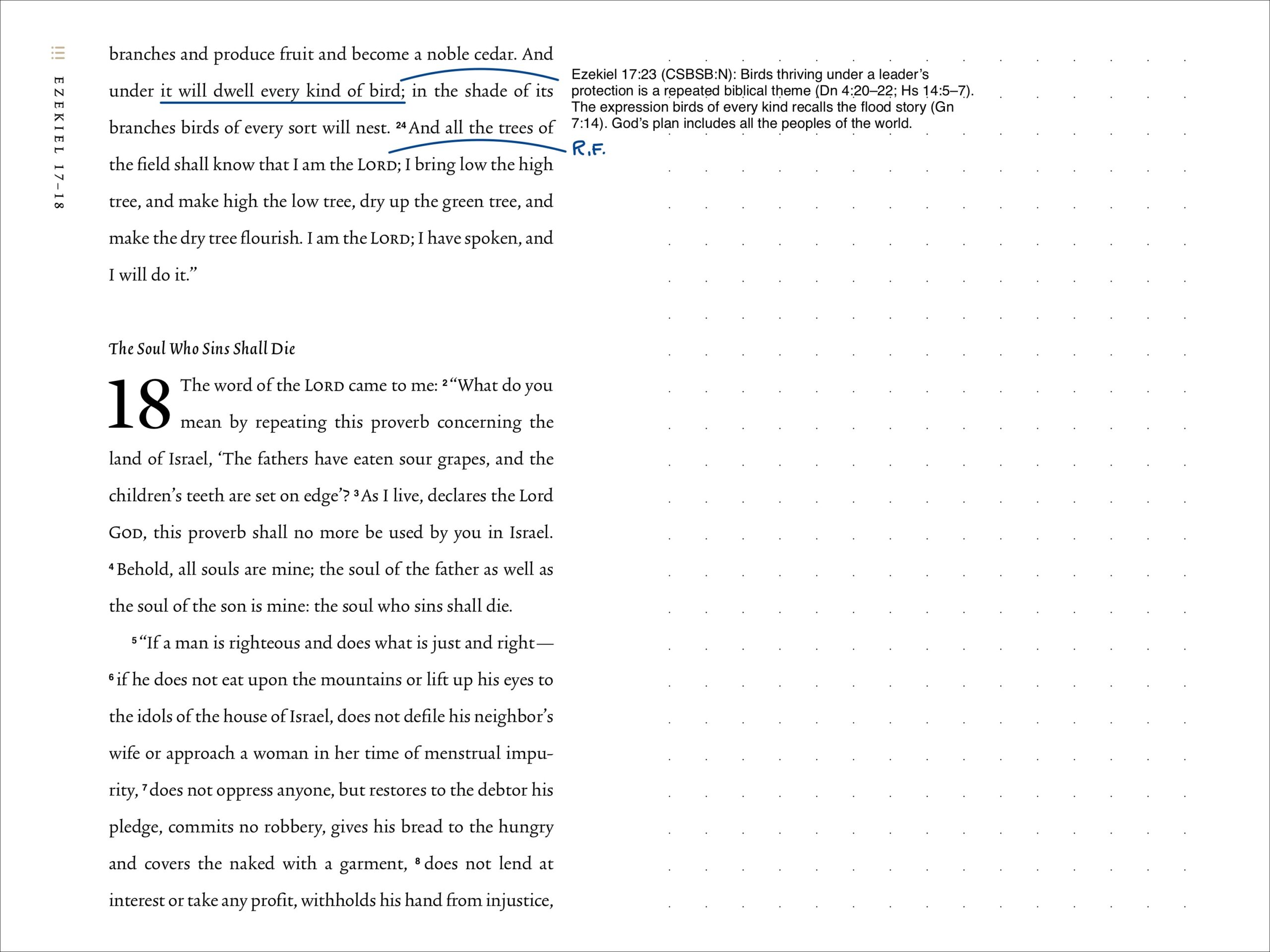| Date | Version | Reading Plan |
|---|---|---|
| @September 7, 2023 | ESV (2016) | ESV Prophets Plan 2023 |
Pericopes
- Parable of Two Eagles and a Vine
Notes
The chapter opens with God giving Ezekiel a word to “propound a riddle, and speak a parable” to the house of Israel about two eagles. The first eagle stands for Nebuchadnezzar, king of Babylon, who campaigned in Judah in 598 BC and took King Jehoiachin into exile. Nebuchadnezzar placed Jehoiachin “beside abundant waters. He set it like a willow twig, and it sprouted and became a low spreading vine” (Ezek. 17:5).
Ezek. 17:7-8 depicts the second eagle which is less grand and powerful, but still formidable. It likely represents Pharaoh Psammetichus II of Egypt who came into power in 595 BC. In 591, Psammetichus entered Palestine and challenged Babylonian power there.
In Ezek. 17:9-10, God asks if the planted sprout will thrive. The rhetorical question directs the audience’s attention to the dangerous circumstances. Once Judah has rebelled, there will be little to stop Nebuchadnezzar from destroying it.
Ezek. 17:11-15 is the explanation of the parable, that the king of Babylon took the king of Jerusalem to Babylon and made a covenant with “one of the royal offspring” (Ezek. 17:13). This describes Nebuchadnezzar’s installation of a puppet king, Mattaniah, who was renamed Zedekiah after Jehoaichin was removed from the throne. The upper-class people of the land were also carried away to Babylon (2 Kings 24:15).
Ezek. 17:16-21 describes how Zedekiah and his troops will die in Babylon, a prophecy fulfilled in 2 Kings 25:7. Zedekiah despised the oath and thus “he shall not escape” (Ezek. 17:18). The breaking of the covenant with Nebucadnezzar in seeking Egypt’s help to obtain deliverance from Babylon was the same as if he broke it with God Himself. Zedekiah will die, along with “the pick of his troops” and the “survivors shall be scattered to every wind” (Ezek. 17:21).
Dire as this seems, the final section of the chapter (Ezek. 17:22-24) provides a future hope; that God will “take a sprig from the lofty top of the cedar and will set it out”. This is the promise of a future Messiah who would descend from the house of David. He would be a fruitful tree to afford safety to the people (Ezek. 17:23). God does not leave His people hopeless but directs their eyes toward the coming Messiah, under whose protection will “dwell every kind of bird” (Ezek. 17:23), representing people from every part of the world.
Application
Mentioned 6x throughout the chapter, the concept of “covenant” is a prominent theme, both in the breaking of it by the people and of God’s promise to establish a new one. God instructed Ezekiel to use the illustrative method of parable to describe the rebellion of the people and its consequences. The breaking of the covenant with Nebuchadnezzar by Zedekiah was akin to his breaking it with God. This would lead to the demise of himself and his troops and those who managed to escape the sword would be scattered.
Because of its prominence within this chapter, I thought it best to focus this morning on the Biblical understanding of covenant. Packer defines covenants as “solemn agreements, negotiated or unilaterally imposed, that bind the parties to each other in permanent defined relationships, with specific promises, claims, and obligations on both sides”. He continues by saying that “God’s covenant with Israel was preparation for the coming of God himself, in the person of his Son, to fulfill all his promises and to give substance to the shadows cast by the types (Isa. 40:10; Mal. 3:1; John 1:14; Heb. 7–10).” In this, the “covenant framework embraces the entire economy of God’s sovereign grace”.
The only posture to have toward a God who would institute such a covenant with His rebellious rational creatures is a gratitude manifesting in full surrender and wholehearted worship. There is no other appropriate response.
Scripture Journal Notes
Commentaries & Resources Used
- ESV Study Bible. (Wheaton, IL: Crossway, 2008)
- Faithlife Study Bible (Lexham Press, 2016)
- Believer’s Bible Commentary (Thomas Nelson, 2016)
- CSB Study Bible Notes (Holman Bible Publishers, 2017)
- Matthew Henry’s Commentary on the Whole Bible (Guardian Press, 1976)
- The Bible: A Reader’s Guide (Sterling Publishing, 2011)
- The Infographic Bible (Zondervan, 2018)
- ESV Digital Scripture Journal (Crossway, 2019)
- J. I. Packer, Concise Theology: A Guide to Historic Christian Beliefs (Wheaton, IL: Tyndale House, 1993)



